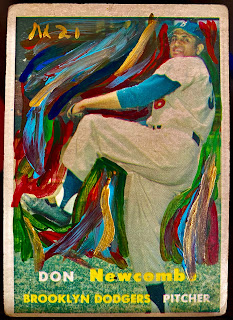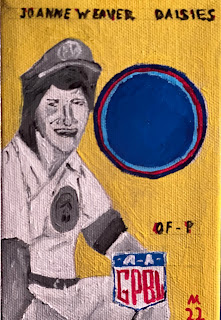I'm proud to be an American, where at least I know I'm free.
First performed in 1984, Lee Greenwood's patriotic song has become part of the American songbook over nearly forty years of performance. It's a staple of political rallies and July Fourth events. While more recently it's more common at conservative political rallies, it doesn't contain any political statements that can be attributed to any party or cause. It's a song in a long tradition that includes George M. Cohan and Irving Berlin.
July 4 is the day that the United States mark the publication in 1776 of the Declaration of Independence by 13 colonies along the eastern seaboard of North America from Great Britain. Notwithstanding the fact that millions of enslaved people-in bondage because they were Black- were not independent of anyone. The recently declared holiday of Juneteenth marks the day, two and one half years after the end of the Civil War, when Black Americans in the far reaches of Texas were finally notified that they were no longer enslaved.
What does freedom mean?
We talk about freedom often in this country. Freedom of speech; freedom of expression; freedom of religion; freedom to travel; even the freedom to arm oneself with a weapon. It's worth noting that none of these freedoms are mentioned in the Declaration of Independence. The Declaration itself is a list of grievances about the rule of the British Crown, some of which include:
- He has made Judges dependent on his Will alone, for the tenure of their offices, and the amount and payment of their salaries.
- For protecting (armed troops), by a mock Trial, from punishment for any Murders which they should commit on the Inhabitants of these States:
- For depriving us in many cases, of the benefits of Trial by Jury:
- He has excited domestic insurrections amongst us.
 |
| Don Newcombe was the first Black pitcher to win 20 games in a season in the major leagues, after 50 years of Black players being excluded. |
Some of these sound familiar, given the political environment of the past eight years, marked by the corruption of Supreme Court justices leading to decisions rescinding basic human rights for women and LGBTQ+ people and making higher education inaccessible to all but the wealthiest Americans; the lack of accountability for police forces in unsanctioned killings, particularly of young Black men; the backlogs and huge costs of the legal system that make the system of justice inaccessible to all but the wealthiest of the wealthy; and the continued refusal to accept election results.
How free are we, really?
 |
| Joanne Weaver hit .429 for the 1954 season and is one of baseball's women on the field. |
On this July 4th, I'm touched by Robert Reich's statement about who we are:
America's moral mission has been toward greater inclusion -- providing equal rights to women, Black people, immigrants, Native Americans, Latinx, LGBTQ+, Muslim, Jewish, atheist, and agnostic.
True patriots don't fuel racist, religious, or ethnic divisions. Patriots aren't homophobic or sexist.
Nor are patriots blind to social injustices -- whether ongoing or embedded in American history. They don't ban books or prevent teaching about the sins of the nation's past...they are devoted... to the ideals of America -- the rule of law, equal justice, voting rights and civil rights, freedom of speech and assembly, freedom from fear, and democracy.
So where to go from here?
In data visualization, concepts that get a lot of attention are inclusivity (designing and writing for everyone) and accessibility (designing without technical barriers that can prevent people from fully appreciating the impact of the work). They are related but unique concepts. (Think of a curb cutout that is accessible because it allows people in wheelchairs to access the sidewalk, but that is also inclusive because it makes the sidewalk more usable for animals, people with sprained ankles, and people with rolling luggage or carts.)
This can mean things like using unbiased language and imagery that doesn't assume baked-in knowledge that might not be understood by certain groups. It can mean explaining concepts that might go over people's heads -- I avoid sports analogies in my non-sports presentations -- and using words that don't assume an audience's gender.
It means giving space to underrepresented voices, amplifying their roles in the the discussion instead of speaking myself. There are enough white, heterosexual, cisgender men in their fifties to go around and while I certainly have a contribution to make, we need to have more Black, LGBTQ+, female, and intersectional voices at the front of the room.
It means creating an expectation that all of the spaces where we live, work, and play -- including virtual spaces -- represent the same values that our multiracial democracy aspires to represent. America didn't become a multiracial democracy until 1965 -- so it's important to note that all American institutions-our colleges and universities; our companies and organizations; our sports leagues (save for, notably, the WNBA and Major League Soccer); which predate the Voting Rights Act and thus have elements of the systemic racism that has plagued this country for as long as it has existed. This is most definitely not to say that everyone involved with these institutions are systemically racist -- but as Ibram X. Kendi notes, this is where we are called upon to not just be "not racist" but to be antiracist, calling out institutions for instances of systemic racism that can be corrected.
So yes, at least I know I'm free -- but until we're all free, freedom is a work in progress.
Comments
Post a Comment